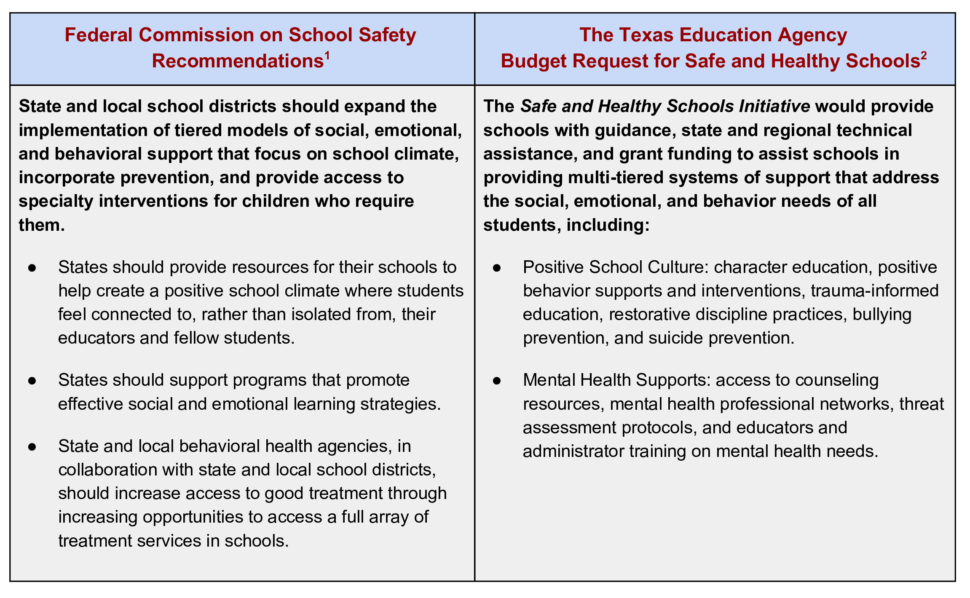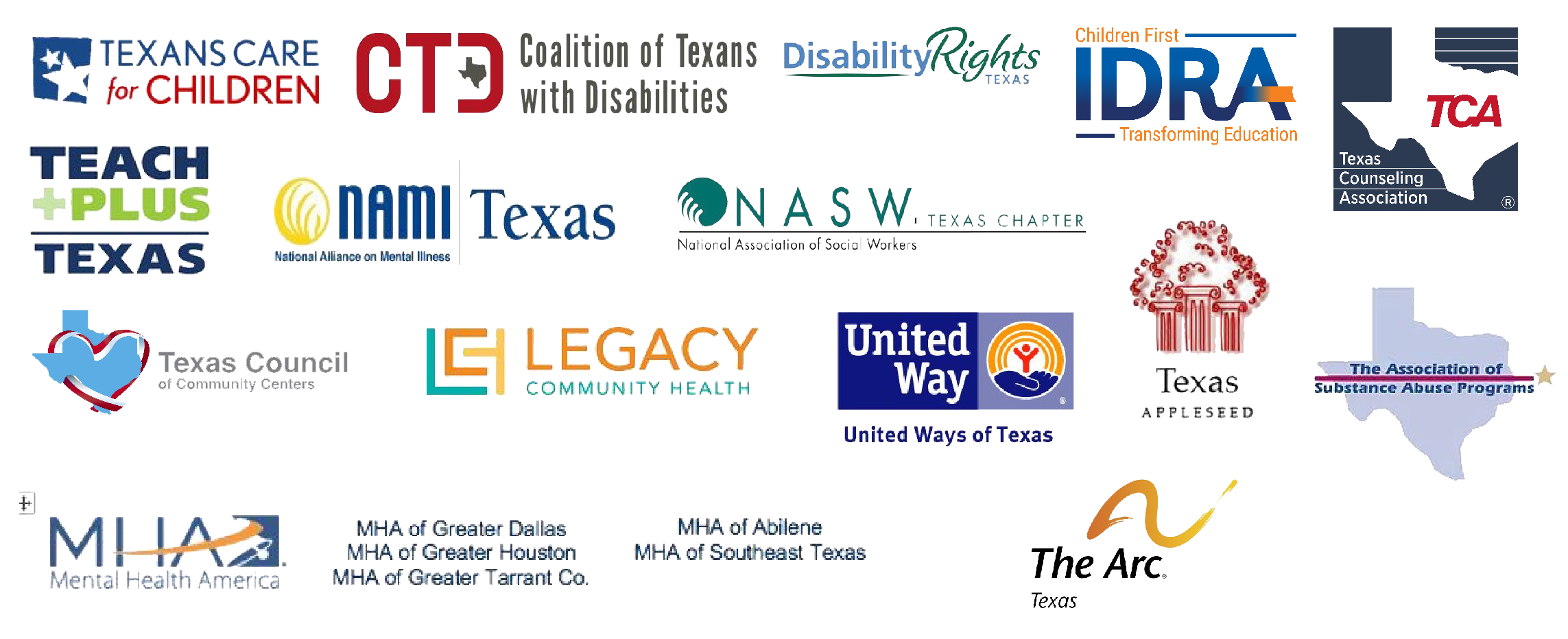The following organizations collectively call on the Texas Legislature to make budget and policy decisions to ensure schools in Texas have the tools they need to keep all students safe while supporting their education, healthy development, and behavior. We respectfully urge the Legislature to:
1. Fund TEA’s “Safe and Healthy Schools” Exceptional Item Request and Include an Increase to Funding Levels to Support School Climate and Student Mental Health Strategies Beyond the First Year of the Biennium.
➔ TEA’s request includes strategies that will provide schools with tools and resources to implement positive school climate and school-based mental health supports in alignment with recommendations made by the Federal Commission on School Safety.
➔ TEA’s request is a good starting place for discussions on how the Texas Legislature will support schools and educators in addressing student mental health and school safety.
➔ The one year of funding requested by TEA for FY 2020 is not sufficient to provide schools with ongoing guidance and support needed to ensure all students attend safe and healthy schools.


2. Support and Fund Legislation that Assists Schools in Providing All Students with Learning Environments and Supports that:
➔ Promote safety, trust, respect, and open communication.
➔ Foster an environment where students feel connected to – rather than isolated from – their educators and fellow students.
➔ Support educators and other school personnel, providing them with training and tools they need to support student learning, development, and behavior.
➔ Assist students in developing the core life skills of self-awareness, self-management, social awareness, relationship skills, and responsible decision-making by engaging educators, parents, and community providers as partners in promoting positive social-emotional skill among students.
➔ Use tiered-levels of support that reflect best-practices in improving the learning, development, and behavior of students based on their level of need, including school-wide prevention, early interventions for students at heightened risk of concern; and working with community-based providers to offer school-based mental health services to students who need them.
➔ Ensure students are safe from violence, bullying, harassment, and stigma.
➔ Are trauma-informed, reducing the risk that trauma or adversity in students’ lives will have negative effects on their learning, behavior, or development- especially for students with developmental delays.
➔ Have high expectations for all students, well-managed classrooms, available school-based health supports.
➔ Have a clear, fair disciplinary policy that addresses student behavior in a proactive manner, rather than a reactive one. Help students behave appropriately, holding them accountable for their actions while supporting their full development and making schools better places for all students to learn.
➔ Avoid the use of exclusionary discipline policies that violate federal protections of students with disabilities or increase the risk of negative outcomes for students by failing to address the root causes of inappropriate behavior and increasing student alienation, rejection, and isolation from healthy adult and peer relationships.


For more information, please contact Josette Saxton with Texans Care for Children at jsaxton@txchildren.org or Tiffany Williams with the Coalition of Texans with Disabilities at TWilliams@txdisabilities.org.
1 Final Report of the Federal Commission on School Safety (2018) https://www2.ed.gov/documents/school-safety/school-safety-report.pdf
2 Texas Education Agency 2020-2021 Legislative Appropriations Request

